George Cattermole (1800-1868)
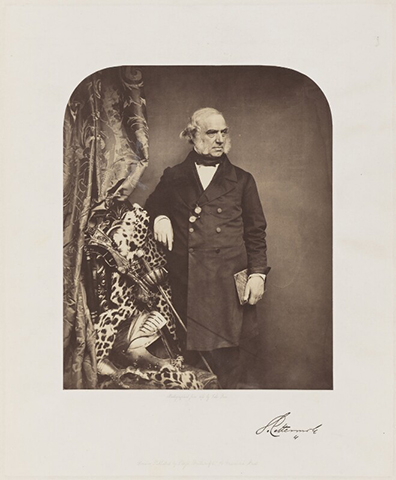
At the age of fourteen, George Cattermole learned to draw for John Britton who wrote on the preservation of architectural antiquities. Cattermole expanded his skills to paint in watercolor and at the age of twenty-two became a member of the exclusive Royal Watercolor Society, specializing in sentimental and historical scenes. Dickens greatly admired the romantic and artistic merit of Cattermole’s painting, and the two became friends prior to any working relationship.
Since Master Humphrey’s Clock as originally intended would include historical tales of London, Dickens considered that Cattermole’s skill depicting architectural antiquities would be eminently suitable, and enticed Cattermole with the promise of allowing the artist to create the drawings but having the engraving of the woodblock executed by others.

Dickens was always most careful and considerate in his dealings with Cattermole, as opposed to his sometimes impatient and condescending treatment of other artists. As Master Humphrey’s Clock evolved into installments of the novels The Old Curiosity Shop and Barnaby Rudge, Dickens made certain to include scenes which would capitalize on Cattermole’s skills as a draughtsman.
Cattermole became reclusive in his later years and in embarrassed circumstances. Dickens helped Cattermole’s wife secure a pension from the Royal Academy and conducted a private appeal for funds to help support their large family.
Illustrations, Artwork, and Correspondence
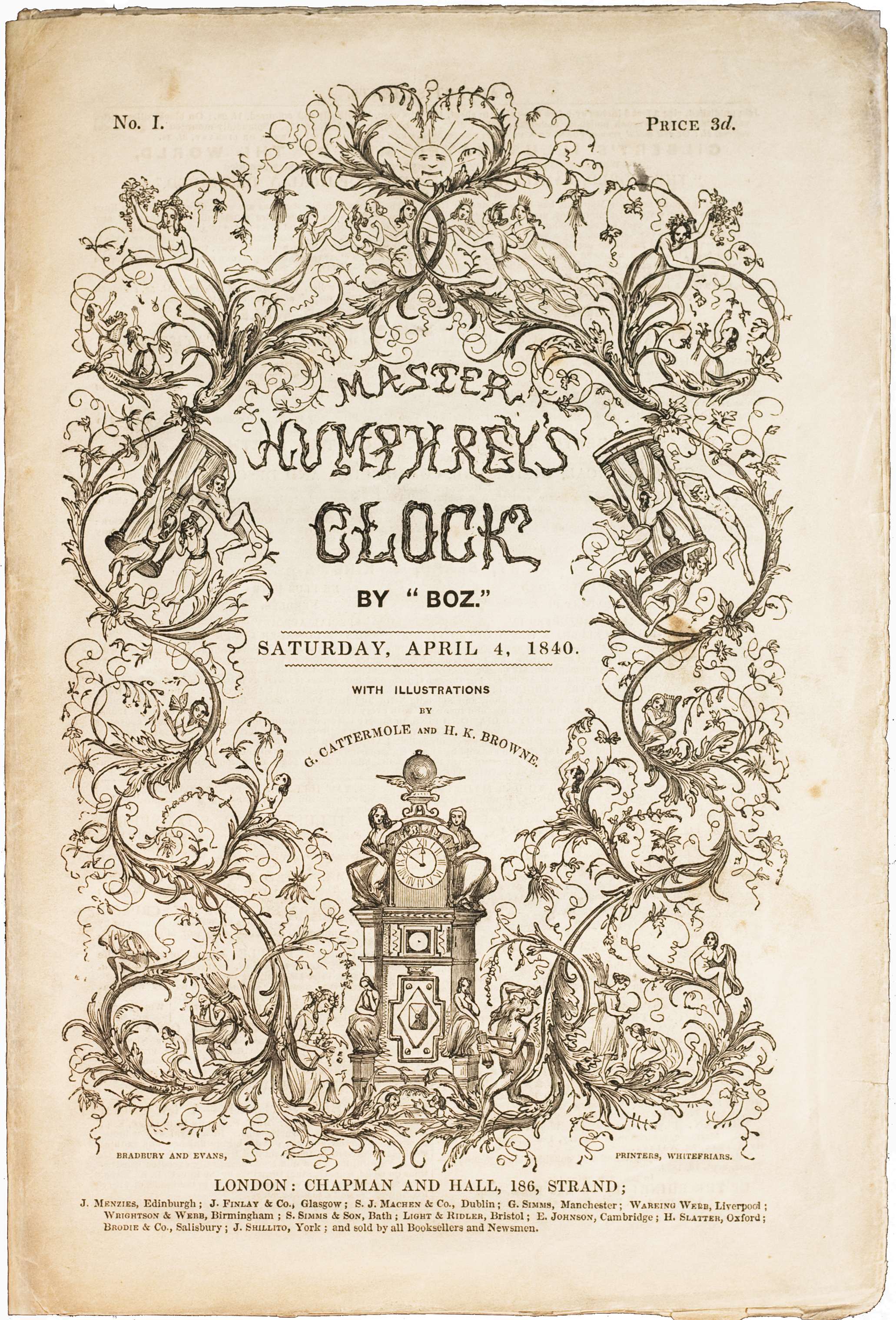
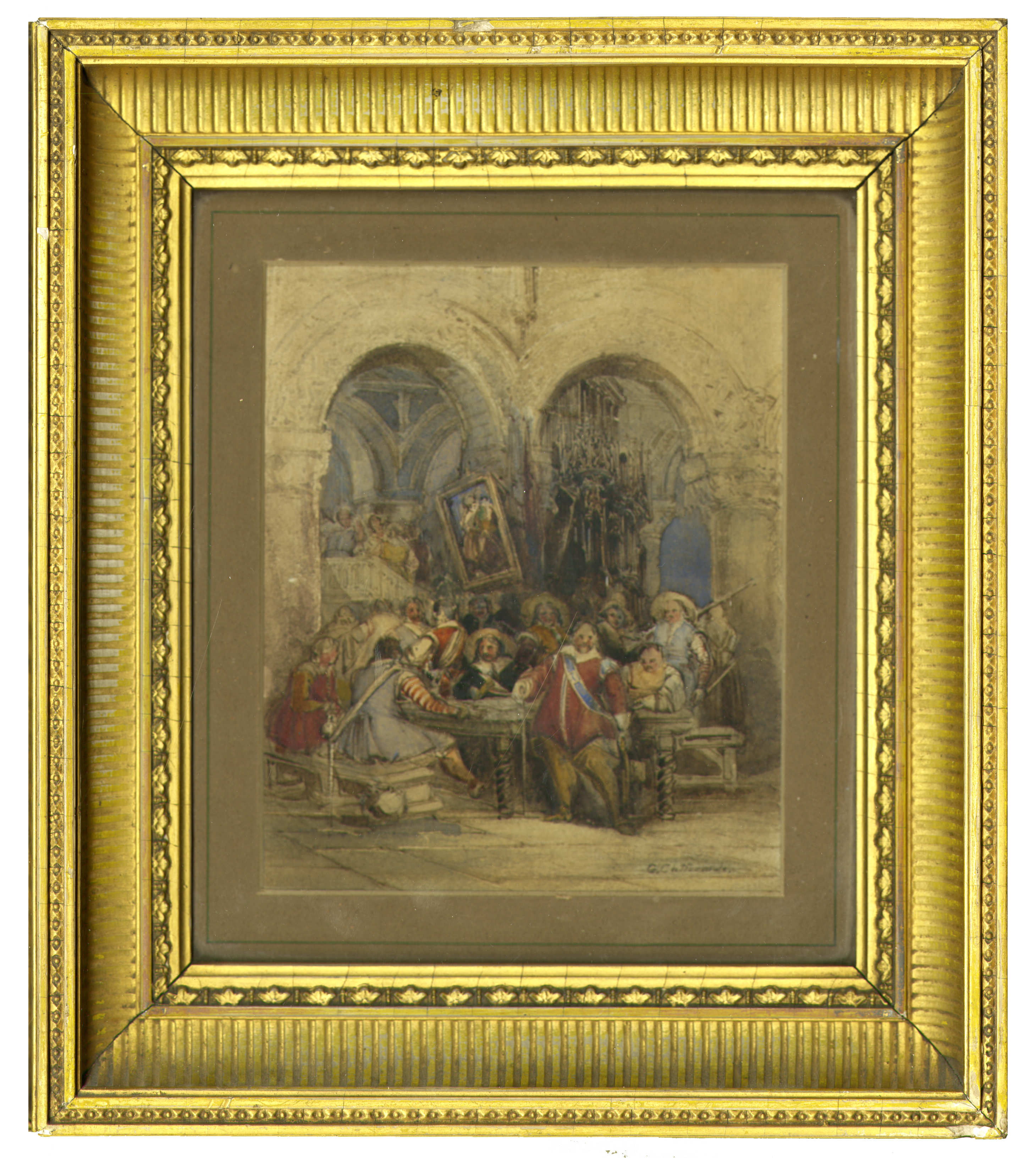
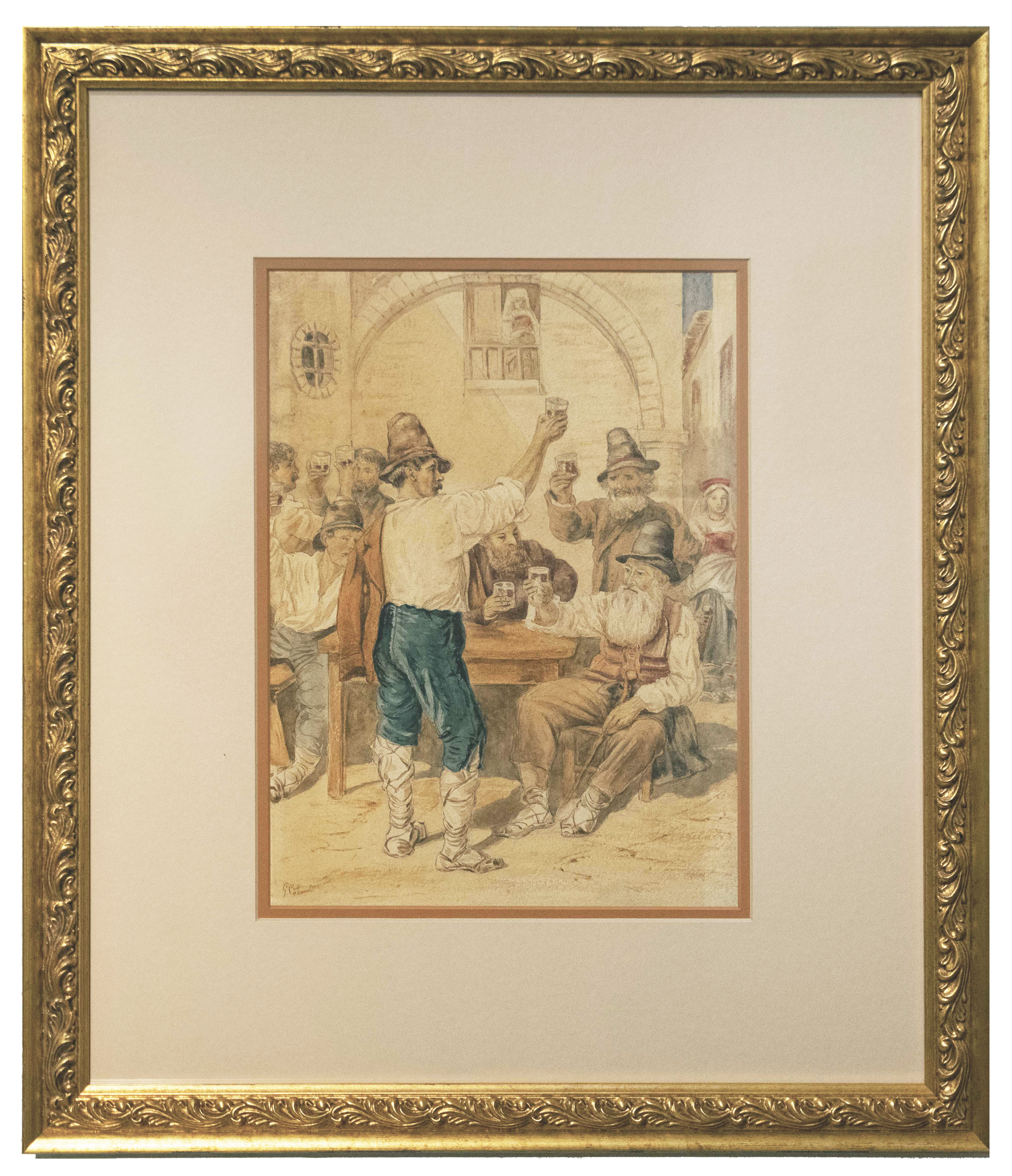
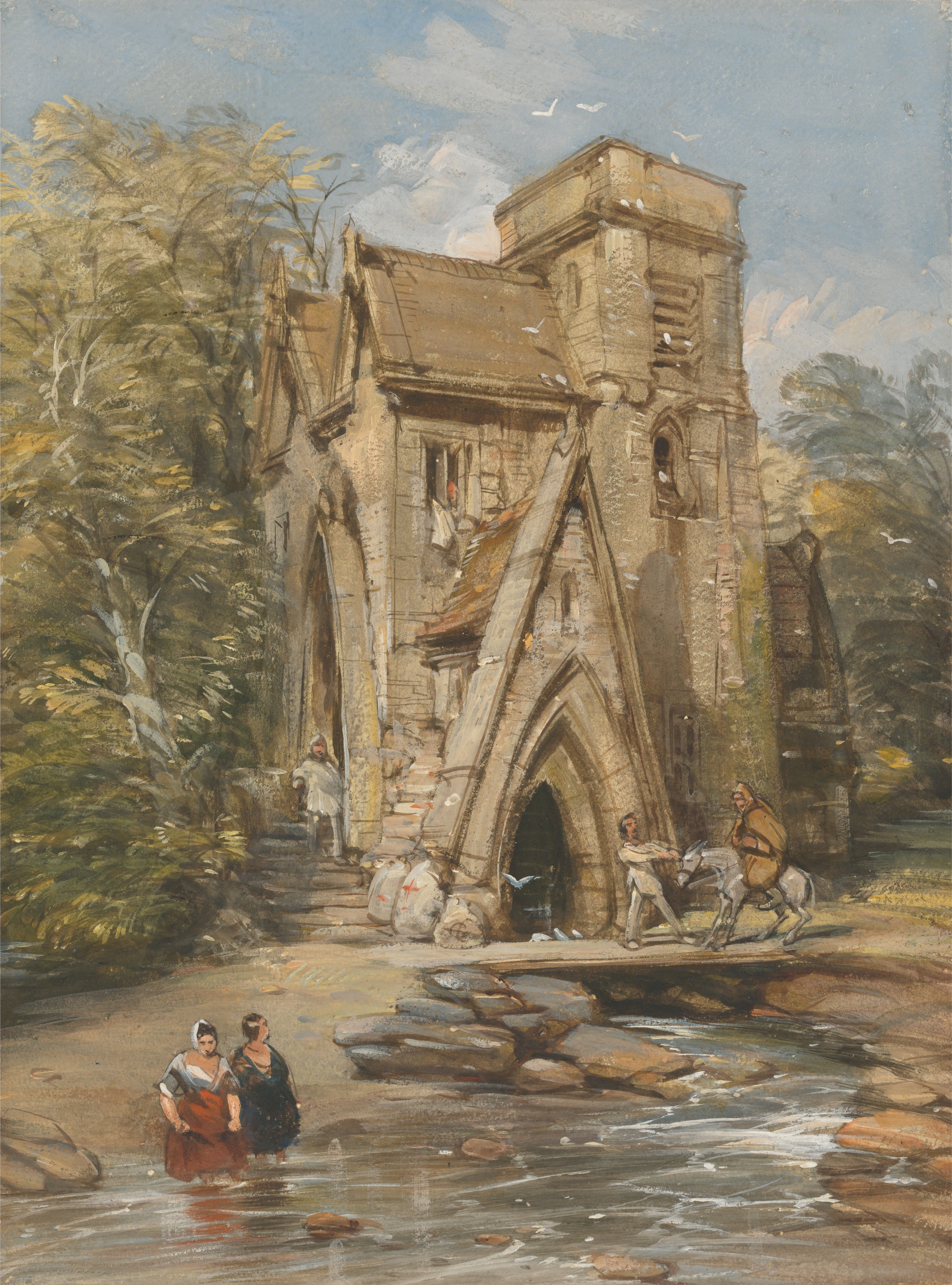
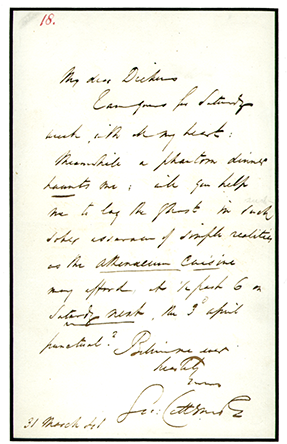
Transcription of letter from George Cattermole to Charles Dickens:
My Dear Dickens
I am yours for Saturday lunch, with all my heart: Meanwhile a phantom dinner haunts me: will you help me to lay the ghost in such sober assurance of simple realities as the Athenaeum Cuisine may afford, at ½ past 6 on Saturday next, the 3rd April, punctual?
Believe me most heartily yours,
Geo. Cattermole
31 March 41
Lent by Daniel and Alice Ryan
Barnaby Rudge, 1st edition (1841) - Monthly issues from Master Humphrey’s Clock
Select thumbnail to view the issue.
Read more monthly issues from the first edition of Barnaby Rudge in the Digital WPI repository at https://digital.wpi.edu/show/ws859h61c.
Back
